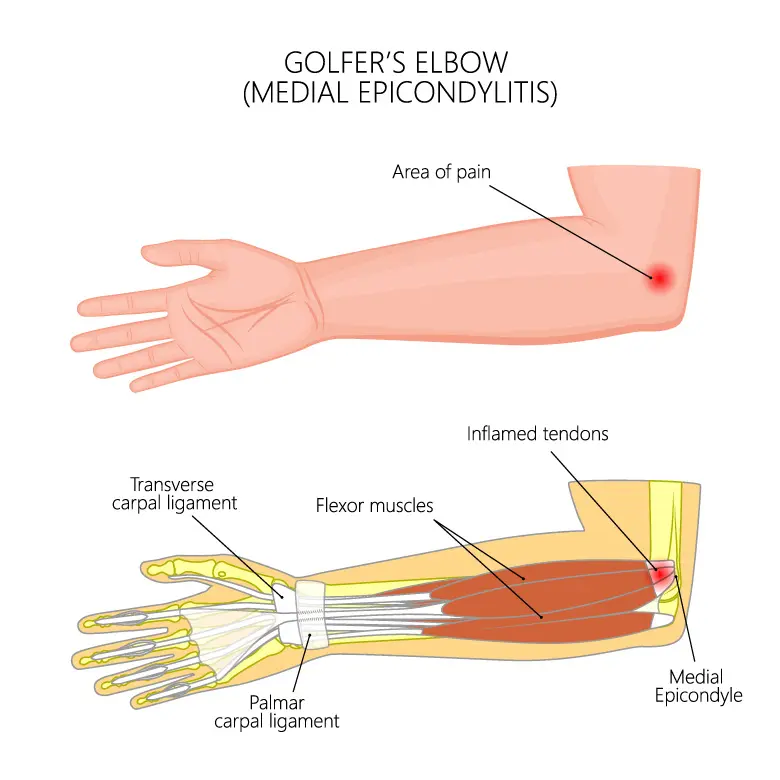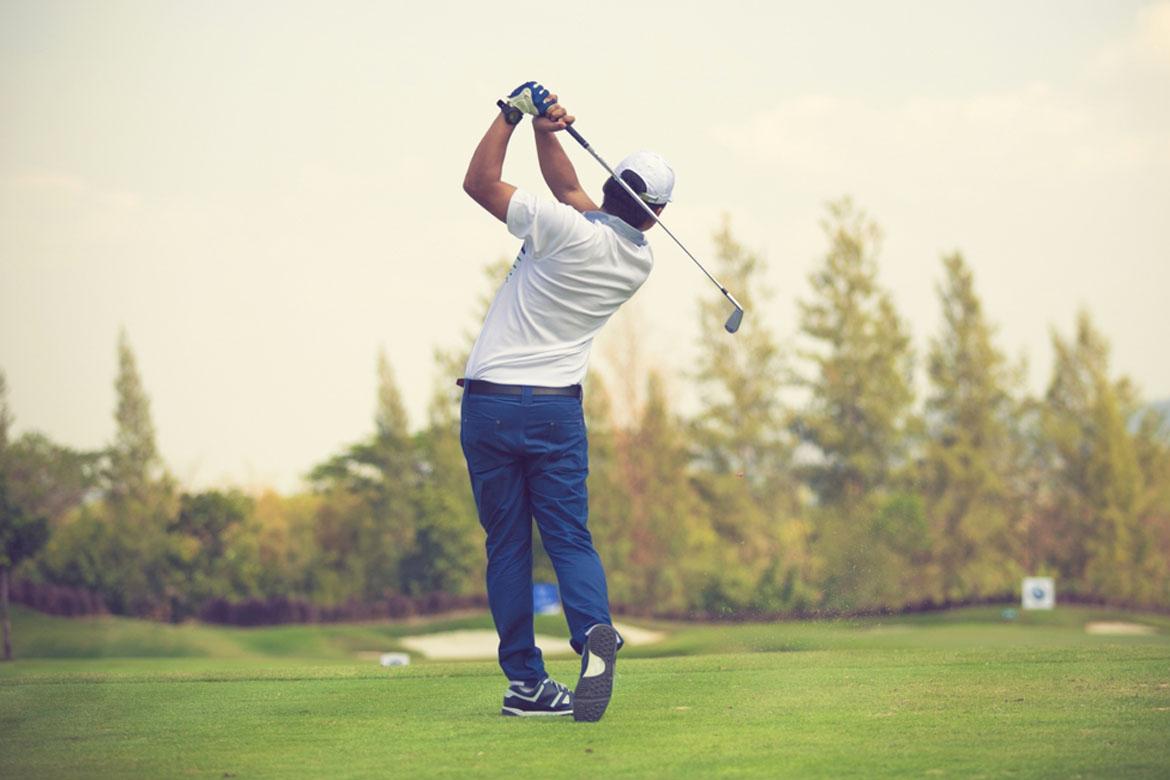-
-
Featured Care Areas

Golfer's Elbow
What is golfer's elbow?
Golfer’s elbow is a condition characterised by pain on the inside of the elbow. In particular, the pain can be felt at the bony bump on the inner part of the elbow (the medial epicondyle), where the flexor tendons of the forearm attach to the elbow. For this reason, golfer's elbow is also known as medial epicondylitis.
The condition occurs when the tendons that join the forearm muscles to the elbow become swollen.
What are the symptoms of golfer's elbow?
The main symptom of golfer’s elbow is tenderness and pain on the inside of the elbow.
Other symptoms include:
- Less strength than usual when holding something or squeezing your hand into a fist.
- Pain spreading down your arm, which may worsen when bending the wrist, twisting the forearm down or holding on to objects.
- Worsening pain when lifting a heavy object with the palm facing up.
What causes golfer's elbow?
Golfer's elbow is typically caused by repetitive overuse of the common flexor muscles of the forearm. This is usually the result of sports that strain the upper limb (such as golf and upper limb gym workouts), or long hours of work involving the use of the upper limb.
Less commonly, golfer's elbow can start after traumatic injury to the common flexor muscle, such as a sports injury or a fall.
What are the complications and related diseases of golfer's elbow?
If left untreated, golfer’s elbow can lead to complications such as:
- Chronic pain
- Loss of range and function
- Stiff elbow (elbow contracture)
This page has been reviewed by our medical content reviewers.
Need help?
For enquiries, please call
+65 6575 7575
For appointment bookings, please WhatsApp
+65 8111 9777




